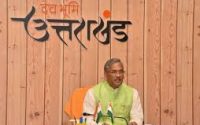$100 Website Offer
Get your personal website + domain for just $100.
Limited Time Offer!
Claim Your Website NowJharkhand Polls: Why Mob Lynchings No Longer an Agenda?
Source – newsclick.in
Ranchi: On May 18, 2017, in the Kharsawan district of the state, Sheikh Halim, along with three others, was brutally beaten to death by a mob on the mere suspicion that they supplied beef for a wedding function. This was one of the many public lynchings that have been reported from across the state in the last three years. According to activists and civil society groups in the state, from 2016, 20 people have lost their lives owing to the mob lynchings. While the opposition is using this as a poll plank to corner the government, nobody seems to be reaching out to the family of the victims.
Speaking to NewsClick, 21-year-old Tara Khatoon, wife of Siraj Khan who had died following a mob attack, said, “We still await justice. After his death, people had reached out to me. However, no one has expressed any concern in the past year.”
“When my husband left home, he had just mentioned that he is going for a driver’s duty for the day. After this, he never returned. Later, we were told that he has been lynched by a mob,” she added. Khatoon is still awaiting compensation from the state and has taken up tailoring work to make ends meet and raise her young daughter.
On June 29, 2017, a mob of over 100 people brutally beat up meat exporter Alimudin Ansari in the busy marketplace of Ramgarh. Ansari had died even before he could be treated at a hospital. When this incident took place, Prime Minister Narendra Modi was giving speeches against the increasing instances of violence because of cow vigilantism. A year later, in March 2018, the Ramgarh court convicted 11 people sentencing them to life imprisonment in the case. However, an appeal against the decision was filed in the High Court, following which, 10 out of the 11 in the case were granted bail. One of the accused withdrew his application. The final decision in the case is still pending with the court.
The apathy by the state was best exemplified when the eight accused in the case were granted bail by the Jharkhand High Court, following which, Union Minister Jayant Sinha had welcomed them with open arms and garlands. Speaking to NewsClick, Alimuddin’s wife, Mariyam, said, “The action of garlanding the accused by the BJP leadership communalised the issue by giving it a Hindu-Muslim angle, which is absolutely incorrect. What’s needed is the understanding of the fact that such instances adversely affect everyone on both sides.”
She added, “No one from the BJP has visited me. Following the incident, my children had to quit school and I am struggling to make ends meet. If the leadership would have visited, it would have created an atmosphere of sympathy and support. But now, an atmosphere of hatred is being created.”
The families of the victims of mob violence feel ignored and cornered not just by the BJP but by the other parties as well. “The politicians have not shown the slightest of care when it comes to the question of providing jobs. I managed to build a house using the money. But now, it’s getting difficult to sustain ourselves or even arrange food.”
In another instance in September this year, a tribal man was beaten to death following accusations of supplying beef. Two other people were also beaten up by a mob. When the police arrested over a dozen people in connection with the case, in an attempt to get them released, over a hundred people gathered at the Karra police station. One of the persons who was beaten up by a mob, Phillip Horo, said, “They beat me up with bamboo and sticks, I somehow managed to get out of there alive. I have spent months in the hospital and I am still not well. I vividly remember what I had to go through.” The instance forced Horo to shift to Kolkata along with his family.
With the upcoming state Assembly elections, the main concern of the families of the victims of public lynchings is the impunity given to those accused by the BJP government.
While the Congress party has included the issue of lynchings in its election manifesto, other opposition leaders are making just passing references to the issue, without making any concrete promises. Social activist Afzal Anees said, “Over 20 such instances have been reported so far; the first one was reported in 2016 in Latehar district. When one looks closely at the pattern of the lynchings, it becomes clear that the lynchings were planned.” He alleged that crowds would gather in the wee hours of the morning or in desolate locations to plan the lynchings.
Speaking about the role of the police, he added, “In some instances, the police look efficient. However, concrete steps that should have been taken were not initiated. Moreover, the political legitimacy given to the accused is a dangerous trend which has triggered outrage, the price of which is likely to be paid by the ruling dispensation.”
Many political analysts in the state say that in the initial phase of the election, the issue of mob lynchings was crucial. However, over time, the focus seems to be shifting. The regional political equations, the language and local issues are overshadowing the discourse in the state. Analysts also believe that those in the opposition did not feel that they will benefit much by making this their core agenda, as regional issues look more lucrative.
Another reason for the shift in the focus is the speeches by Prime Minister Narendra Modi. The opposition is now busy countering him. In the past 15 days, Modi held six big election rallies. Apart from him, other senior leaders such as Rajnath Singh, JP Nadda, Sambit Patra, Nitin Gadkari, etc. are also campaigning in the state.
Speaking to NewsClick, Supriyo Bhattacharya, of the Jharkhand Mukti Morcha (JMM) said, “The issue of mob lynchings is of grave concern. The BJP has turned Jharkhand into a ‘mob lynching laboratory’. In over 12 of the reported cases, the lynchings have taken place in the name of religion.” He added, “If our government is elected to power, then these issues will be tried in fast track courts.”
When the same questions were asked to the BJP leader in the state, Dindayal Varnawal, the spokesperson of the party, he said, “The instances of mob violence are being used by the opposition parties to defame the state.” Denying any instances of mob violence, he said, “There are no instances of mob violence, these are instead conspiracies by the opposition which is trying to give every instance the same color.”
The state Assembly elections are underway in five phases. Voting in the first phase took place on November 30 and for the second phase on December 7. Results are scheduled to be declared on December 23.



